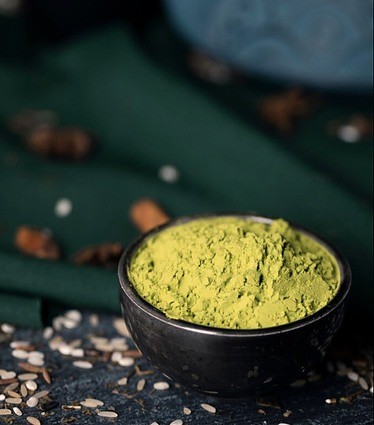Yo,
It’s my pleasure for you to be here with me today. I hope you’ve been having an excellent day and putting in the work in whatever you want. If not, you can always get back on track.
So, pea protein powder nutrition. Pea protein powder is vegan and does not contain any dairy, so this is an option for almost everyone. It’s been gaining traction recently, as protein powder continues to evolve and there are new types coming out.
Today, we’ll be going into and breaking down the nutritional content of pea protein powder. If you would like to learn more about the benefits of pea protein powder, you can check out one of my previous posts on it
As the name suggests, pea protein powder is derived from yellow peas. It’s a plant based protein and the peas go through a series of steps until the powder is created.
With it’s taste, it’s considered to have a slightly earthy and slightly sweet taste. Alright let’s get into the juicy stuff now.
So, we’ll go over the calories, alongside the protein, carbs and fats. Finally, we’ll wrap up with some important facts that I know you’ll want to hear. 
Calories
The caloric amount of pea protein powder is quite similar to your standard whey protein.
This can vary between brands, but in general, a 30g serving gives you about 120 calories. Most protein powders provide around that anyway, so it’s not an outlier.
The majority of the calories come from the protein content within powder since the protein is pretty concentrated. When thinking of using this option, don’t pick it because you believe it’ll provide more calories than the other protein powders. As you can see, the caloric range is pretty similar to the others.
Bear in mind that this is only an approximation, as every manufacturer’s pea protein powder will have a slightly different amount of calories than the others, but I’m sure you get the general range.
Protein
This is probably what you’ve been waiting for. So let’s get into it.
With Pea Protein Powder, a 40g serving of will give you about 29g of protein. In comparison to other whey protein options on the market, this is slightly low. Not too low, but around 5g lower. It’s such a small difference honestly.
Other whey options will give you around 33g of protein for that size. It’s not a big difference, but, if I’m trying to maximise protein on a protein powder option, pea protein powder wouldn’t be my first choice. It’s likely the same with you.
Of course, you could simply increase the serving size by a few grams to make up for the lower protein amount. It’s not the end of the world, but this is what you’re hear to learn about.
So to summarise, the protein is certainly good, but it’s slightly lower in comparison to your whey option.
Carbs and Fats
The carbohydrates and fats are very low. Essentially nonexistent if I’m being honest.
A serving size of 30g will give you basically 1g of carbohydrates.
Yep, 1g of carbs. You are not getting any carbs from this protein powder.
The fats follow a similar trend. A 30g serving of pea protein powder will give you about 2g of fat.
Same thing as before. You’re not getting any substantial amount of fats from pea protein powder.
For most people though, including you reading this, the significantly low amount of carbs and fats is quite appealing.
You, yes you my friend, probably want a protein powder that is more concentrated in protein. Pea protein powder is just that. It’s caloric amount is pretty standard, the protein is concentrated highly, and the carbs and fats are very low.
“Carbs are the enemy”. They’re not, but if you believe it, pea protein powder won’t be an issue for you.
Other Interesting Points
Of course we could just stop here for today, but I want to leave you with a few more things, to expand your knowledge on pea protein powder.
Digestibility.
Pea protein powder is considered one of the more easily digestible protein powder options. It’s been stated to have an 86% Protein Digestibility Corrected Amino Acid Score for children and 93% for adults.
It’s fast digesting and and is known to be easy on people’s digestive systems. A nice thing to bare in mind.
However, everyone is different, so you should also bare that in mind.
Allergen friendly
Pea protein powder is generally free from many of the common allergens such as dairy, soy, nuts and eggs. This means that most people should have no issue consuming this protein powder.
It’s pretty versatile.
Complete Protein
Pea Protein powder is a complete protein. This means that it contains all nine essential amino acids and does not need to be mixed with other protein sources to make up for one of the amino’s missing.
However, it’s important to note that it is slightly low in one amino acid, which is methionine. Although pea protein powder has a low amount of methionine, it’s considered a complete protein regardless.
Vitamins and Minerals
Pea protein powder also has the presence of other vitamins and minerals. Keep in mind that the amount varies between specific manufacturers and options, but this is what you should remember.
Pea protein powder contains iron, calcium, potassium, zinc, B vitamins, magnesium and phosphorus.
They are in relatively small amounts, but it’s a positive worth noting.
Therefore
It’s good. It’s versatile and the macros are quite desirable for most people. Don’t write off pea protein powder just because the protein is slightly lower in comparison to the other options. As you just read, there are numerous other appealing facts about the powder’s nutrition.
Do you need pea protein powder? Most likely not.
Can it help you with your goals? Absolutely.
Did you learn something from this post? Well, I sure hope so.
Regardless, thank you for your time today and I hope to see you again.

